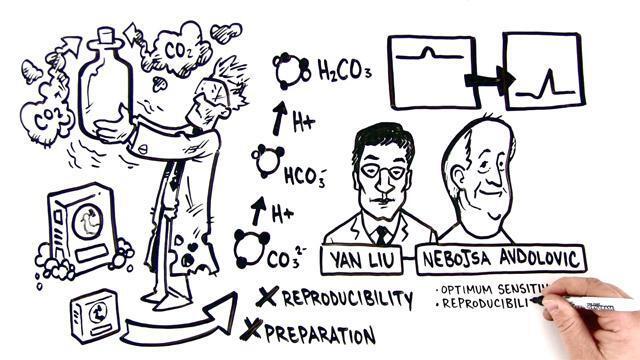Search Thermo Fisher Scientific

Ion chromatography features to meet every IC challenge
Our ion chromatography (IC) systems offer an array of features from compact footprints and low operating costs, to robust, reliable systems for everyday IC analyses, to systems that can meet your most complex analysis challenges with confidence. Thermo Fisher Scientific has set the standard in IC for over 45 years with versatile and advanced technologies such as automated eluent generation, compatibility with a variety of ion chromatography detectors, and a wide range of analytical columns, including anion-exchange columns, cation-exchange columns, ion-exclusion columns and more.
Column selection
Our wide selection of column chemistries is designed to address a broad array of application challenges to provide high selectivity and efficiency with excellent peak shape and resolution. This diverse IC column portfolio ensures that you will be able to find the optimal column chemistry for your sample. Many of our columns are available in multiple formats, including a smaller 4 µm particle size, providing you with even greater efficiency and resolution.
Chemical and electrolytic suppression
Our next-generation suppressors enable the highest sensitivity and lowest detection limits for determination of inorganic analytes by removing conductive ions from the eluent to increase analyte signal and decrease background signal and noise. In addition to chemical suppressors, we offer electrolytic suppression products based on Reagent-Free Ion Chromatography (RFIC) with AutoSuppression.
High pressure capabilities
Optimize your chromatographic analyses with the shorter sample run times and/or improved resolution offered by our high-pressure-capable systems—the Thermo Scientific Dionex Inuvion Core IC, Thermo Scientific Dionex Inuvion IC, Thermo Scientific Dionex Integrion HPIC and Thermo Scientific Dionex ICS-6000 HPIC systems—which can take advantage of our high-efficiency 4 µm-particle-size IC columns, available in 150 or 250 mm lengths and multiple formats. These systems can operate at up to 5000 psi. The 150 mm columns decrease run times while maintaining chromatographic resolution, while the 250 mm columns offer improved peak resolution.
Learn more about our high-pressure-capable systems:
Automated eluent generation
To avoid the variability of manually prepared eluent and improve repeatability of results, our Dionex Inuvion IC, Dionex Integrion HPIC and Dionex ICS-6000 HPIC systems offer automated eluent generation. The eluent generation module uses Thermo Scientific Dionex eluent generator cartridges to avoid time-consuming, cumbersome manual eluent generation by electrolytically generating high-purity hydroxide, carbonate, bicarbonate, or methanesulfonic acid (MSA) eluents at the concentration you specify. The only requirement is a source of high-purity deionized water.
Additionally, the Dual Eluent Generation Cartridge (Dual EGC) mode of the Dionex ICS-6000 HPIC system generates potassium hydroxide/potassium methanesulfonate (KOH/KMSA) eluents for complex carbohydrate analysis.
Plug-and-play detectors
Exchange a conductivity detector (CD) with an electrochemical detector (ED) quickly and easily. It requires just a click of a switch to pull out one detector and plug in the other, simply pushing it in to connect. This capability is available in our Dionex Integrion HPIC and Dionex ICS-6000 HPIC systems. Additional ion exchange chromatography detectors can be connected to these systems in series or in parallel to offer other detection options, such as UV-Vis or mass spectrometry.
Compatibility with hyphenated IC techniques
For analytical challenges that require more than chromatographic analysis, our IC systems can be paired with other analytical techniques, including:
Inductively-coupled plasma-mass spectrometry (ICP-MS) to combine the sensitive elemental detection of ICP-MS with the metal-free fluidic flow path of IC for elemental speciation analysis.
Mass spectrometry (MS) to combine the sensitivity and selectivity of IC with the specificity and sensitivity of MS and optimize for low mass ions.
A combustion system to reduce the time and labor required for the determination of corrosive halogens and sulfur in difficult samples.
